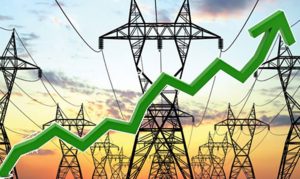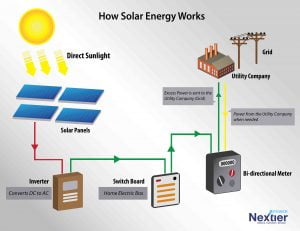Article

Bridging the Gap: Addressing Energy Poverty, Inequality through Renewable Energy
Lack of electricity in Nigeria critically affects the overall development of its economy. The country has the world’s largest absolute electricity access deficit, with 45 per cent of the population (90 million) lacking access to the electricity grid, a recent World Bank report states. Large disparities exist in access to electricity between urban areas (84…

Energy Deficit Impact on Women in Rural Areas in Nigeria (Fact Sheet)
Nigeria’s energy crisis not only hampers its industrial and economic growth but also affects the daily lives of its citizens. Women and children are greatly impacted as a result of persistent energy challenges, especially in rural areas. Many communities in Nigeria remain unconnected to the national grid, and some that are connected receive inadequate service,…

Need To Bridge Electricity Gaps For Rural Women, Girls
By Clement Chisom John Over 90 million Nigerians, approximately 45 per cent of the population, lack access to electricity in their homes and communities, which has severe implications. Without electricity, people face numerous challenges, including limited access to vital information, inadequate healthcare and education services, agricultural wastages, restricted communication, increased insecurity, decreased productivity, rising unemployment,…

Huawei and REAN are Partnering to Bring Revolutionary Smart PV Solutions to Nigeria
Huawei Technologies, a leading global provider of Information and Communications Technology (ICT) infrastructure, has been a household name in the sub-Saharan digital ecosystem, with integrated solutions across four key domains – Telecom, Networks, IT, Smart devices, and Cloud services – and now Digital Power Equipment and Solutions, as it tries to consolidate its mantra of…

Nigeria’s Energy Deficit: Preparing For Fuel Subsidy Removal
By Clement Chisom John According to the World Data Lab 2022, of the total 216.7 million Nigerians, 32 per cent live in extreme poverty. More than half of the extremely poor Nigerians, precisely 53 per cent of the extremely poor live in rural areas where the deprivation of access to basic social infrastructure such as…

7 Facts On Solar Energy
Solar energy is a type of renewable energy that comes from the sun. It is created through the conversion of sunlight into usable energy, such as electricity or heat (thermal). This process is typically achieved through the use of solar panels or concentrated solar power systems. Solar energy is a highly abundant energy resource, in…

Solar 101: The Basics You Should Know
In the last two decades, solar energy has emerged as a globally sought-after source of power generation to complement power supply from non-renewable sources. (Featured by: EmPower Nigeria – A weekly publication of Nextier Power, Supported by: John D. & Catherine T. MacArthur Foundation Vol. 1 Issue 14, Oct. 11, 2017) Nigeria is specially placed at an…
